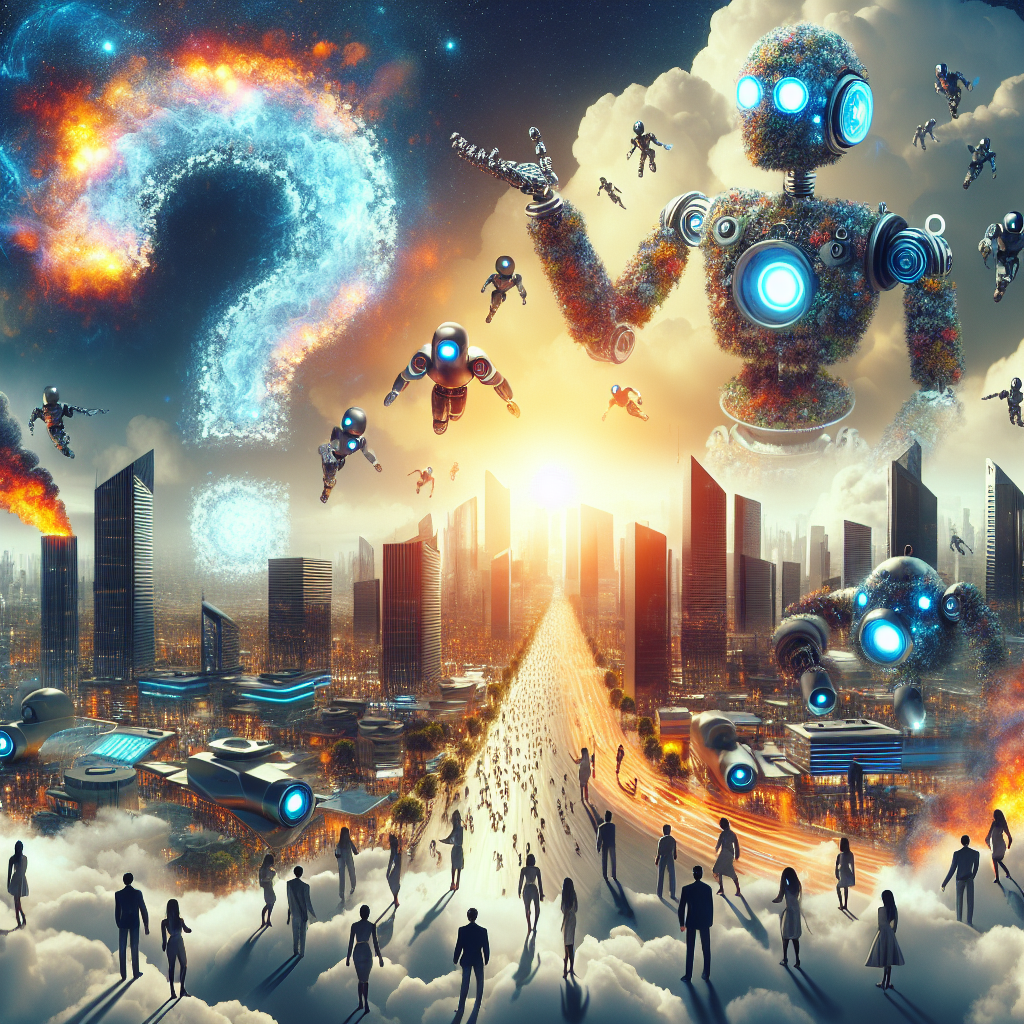Artificial intelligence (AI) has made significant advancements in recent years, with applications ranging from self-driving cars to personalized recommendations on streaming services. While the potential benefits of AI are vast, there are also concerns about the impact it could have on humanity in the future. As AI continues to evolve and improve, there are several potential risks and challenges that could arise. In this article, we will explore some of the potential problems that could arise from the development of AI and how they could impact the future of humanity.
One of the most significant concerns surrounding AI is the potential for job displacement. As AI technology continues to improve, there is a growing fear that machines will be able to perform tasks that were previously done by humans, leading to widespread unemployment. While it is true that AI has the potential to automate many jobs, it is also important to consider the new opportunities that AI could create. For example, as AI technology advances, new jobs will be created in fields such as AI development, data analysis, and machine learning. It is essential for society to adapt to these changes and ensure that workers are equipped with the skills needed for the jobs of the future.
Another potential risk of AI is the impact it could have on privacy and security. As AI systems become more advanced, they will have access to vast amounts of personal data, raising concerns about how this information will be used and protected. There is also the risk of AI systems being hacked or manipulated, leading to potentially catastrophic consequences. It is crucial for companies and governments to prioritize cybersecurity and data protection to prevent these risks from becoming a reality.
AI also raises ethical concerns, particularly in the realm of autonomous weapons. There is a growing debate about the use of AI in military applications, with some arguing that autonomous weapons could lead to a new arms race and the potential for catastrophic consequences. It is essential for policymakers to establish clear guidelines and regulations surrounding the use of AI in military applications to ensure that these technologies are used responsibly and ethically.
In addition to job displacement, privacy and security concerns, and ethical dilemmas, there are also concerns about the potential for AI to surpass human intelligence. This concept, known as artificial superintelligence, raises the question of whether AI systems could become so advanced that they surpass human capabilities and potentially pose a threat to humanity. While this scenario is currently speculative, it is essential for researchers and policymakers to consider the potential risks and challenges associated with artificial superintelligence and take proactive measures to ensure that AI remains aligned with human values and goals.
Despite these potential risks and challenges, AI also has the potential to positively impact humanity in numerous ways. AI has the potential to revolutionize healthcare, transportation, education, and many other industries, leading to increased efficiency, improved quality of life, and new opportunities for innovation. It is essential for society to approach the development of AI with caution and foresight, balancing the potential risks with the vast opportunities that AI presents.
In conclusion, the future of humanity is closely intertwined with the development of AI. While there are potential risks and challenges associated with AI, there are also numerous opportunities for progress and innovation. It is essential for researchers, policymakers, and society as a whole to approach the development of AI with caution and foresight, ensuring that these technologies are used responsibly and ethically to benefit humanity as a whole.
FAQs:
1. What is artificial intelligence (AI)?
Artificial intelligence (AI) is a branch of computer science that focuses on creating intelligent machines that can perform tasks that typically require human intelligence, such as visual perception, speech recognition, decision-making, and language translation.
2. What are the potential risks of AI?
Some potential risks of AI include job displacement, privacy and security concerns, ethical dilemmas, and the potential for artificial superintelligence to surpass human intelligence.
3. How can society address the risks of AI?
Society can address the risks of AI by prioritizing cybersecurity and data protection, establishing clear guidelines and regulations surrounding the use of AI in military applications, and taking proactive measures to ensure that AI remains aligned with human values and goals.
4. What are the benefits of AI?
Some benefits of AI include increased efficiency, improved quality of life, and new opportunities for innovation in industries such as healthcare, transportation, and education.
5. How can individuals prepare for the impact of AI on the future of work?
Individuals can prepare for the impact of AI on the future of work by acquiring new skills and staying informed about the latest developments in AI technology. It is essential for workers to adapt to the changing landscape of the workforce and ensure they are equipped with the skills needed for the jobs of the future.

